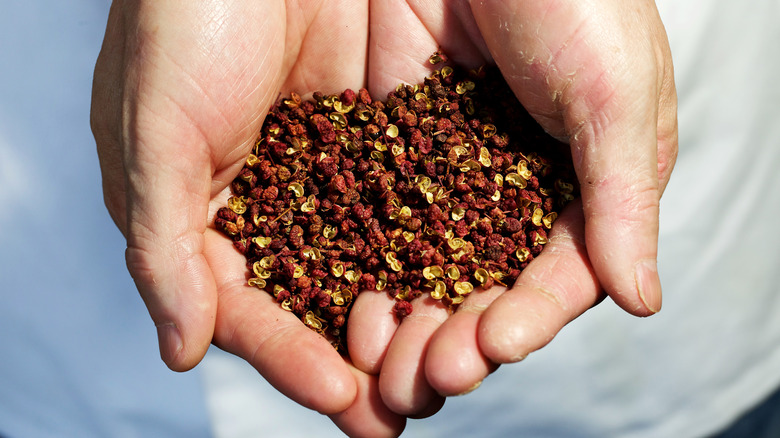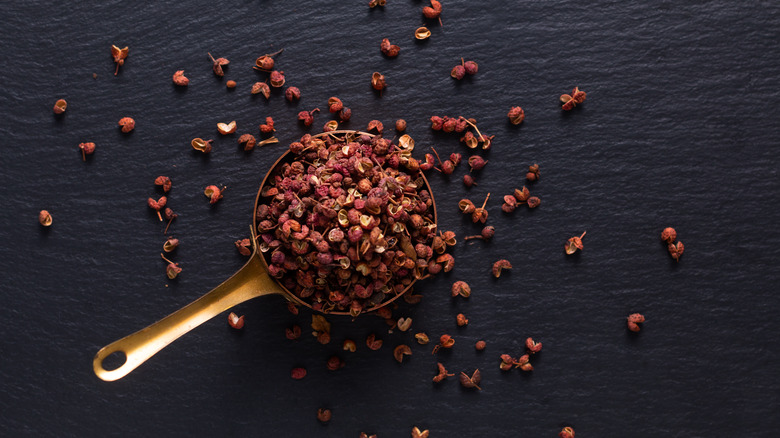The Reason Sichuan Peppercorns Were Once Banned In The US
Sichuan province is located in Southwest China and has something of a fiery reputation. It produces some of the hottest chilis in all of China and is renowned for its spicy dishes. But it's a special variety of pepper — known ominously as Chinese prickly ash — which the region is famous for. Whereas black pepper offers a hint of warming spice, the fierce Sichuan pepper packs an anesthetizing wallop, numbing the mouth and tongue in equal measure. In Chinese cooking, the marriage of numbing pepper ("ma") with spicy heat ("la") is called "málà." It's a unique combination that sets Sichuan apart from the rest of China.
The United States has one of the largest Chinese communities outside of China, and Sichuan pepper is a fundamental ingredient in traditional Sichuan cooking. So it might be surprising to learn that the United States Department of Agriculture (USDA) banned the import of Sichuan pepper way back in 1968. Why were these beloved mouth-numbing peppercorns once banned in America?
The U.S. Department of Agriculture banned Sichuan pepper to save the citrus industry
The problem with Sichuan pepper wasn't anything to do with its mouth-tingling qualities. According to The New York Times, the USDA banned their sale to protect the American citrus industry. The USDA was worried that citrus fruits from China could potentially be carriers of a highly contagious bacterial disease known as canker. As Sichuan peppercorns are actually berries that belong to the citrus family, they were included in the ban despite there being little evidence of carrying the disease.
Fortunately, the USDA approved a treatment in 2005 to destroy the canker by heating the berries to at least 140 degrees for 10 minutes or longer. Although this was good news for the growing Sichuan pepper cult in the United States, some professionals expressed concerns that the heat-treated peppercorns packed less of a punch. According to one restaurateur, the treated peppercorns imparted about 10 percent less heat and tingling sensation in the mouth than untreated ones — not good enough for a seasoned málà aficionado.
That means using more peppercorns to get the desired effect. But it's perhaps a small price to pay. Now everyone can enjoy the unique flavors of Sichuan cooking without missing the star ingredient.

